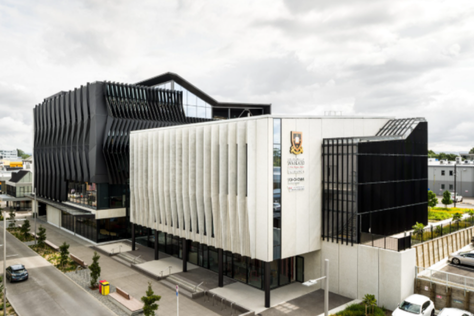About
The Bachelor of Laws (Honours) - Law - Criminology course gives students the knowledge, skills, and experience to pursue their passion for the law, while enabling them to explore issues relating to the criminal justice system such as policing, sentencing and offending. Bangor University's dedicated team of lawyers and criminologists will provide them with in-depth knowledge and understanding of the contemporary legal issues that shape lives and society. As well as developing their legal skills, the strong links with the legal profession and industry ensure opportunities for ‘real world’ experiences to set them up for their chosen career. The course is designed to foster students' intellectual independence. They will be supported to develop the confidence and skills needed to think critically, to ask and answer cogent questions about law and its role in society, and to effectively communicate their reasoned arguments, orally or in writing. They will acquire new knowledge and understanding of the principles and values of law and justice.
Apply Now
Bangor University
Main campus: Bangor, North Wales, United Kingdom401-500
Bangor University
Key information
Duration
Full-time
3 years
Start date & application deadlines
Starting Date
September
August
Language
English
Credits
120 Credits
Delivered
On Campus
Campus Location
Bangor, United Kingdom
Disciplines
Explore more key information Visit programme website
Overview
This degree combines in‑depth legal education with the study of criminology: you’ll learn the foundations of law (e.g. criminal, contract, tort, constitutional law) alongside modules on criminal behaviour, justice systems, crimes of power, policing and social responses to crime. It offers hands‑on learning via practical exercises such as live client work, the replica courtroom, and community law modules. Students can choose a placement year to gain relevant work experience in criminal justice or legal settings. The programme prepares graduates for legal routes (solicitor, barrister), as well as roles in policing, probation, prison services, governmental or NGO work around crime and justice.
Programme Structure
Core Curriculum (LLB (Hons) Law with Criminology)
-
English Legal System
-
Constitutional, Administrative & EU Law
-
Contract Law
-
Tort Law
-
Criminal Law
-
Public Law / Human Rights Law
-
Property Law (Land Law)
Academic requirements
Here’s what we charge for tuition.
English requirements
Tuition Fee
Here’s what we charge for tuition.
The living costs include the total expenses per month, covering accommodation, public transportation, utilities (electricity, internet), books and groceries.
Scholarships Information
As you're from Bangladesh, the scholarships below match your eligibility.
Available Scholarships
You are eligible to apply for these scholarships but a selection process will still be applied by the provider.
Visa information
Student Visas for the United Kingdom
Are you from Bangladesh? You might need a student visa...
Don’t worry, everything is ok. We’re on it, and we’re doing all we can to make your search for the right international degree in the United Kingdom a little easier and more enjoyable. Still, while we’re catching up, you can always beat us to it and:
-
Check if you really need a student visa.
Since you’re from Bangladesh and planning full-time academic study in the UK, yes, you’ll definitely need a student visa. -
Start exploring the official UK government website.
For Bangladeshi applicants, the British High Commission in Dhaka handles student visas. That’s where all the latest and most reliable information lives. Bookmark it, read it, reread it. -
Check the deadlines.
The visa process can take several weeks, and missing a step or delaying your appointment could mean missing the start of your semester. Not the kind of plot twist you want. -
Go on a paperwork treasure hunt.
Passport?
Confirmation of Acceptance for Studies (CAS) from your UK institution?
Visa application form, proof of accommodation, bank statements, English language test results, tuberculosis test results, academic transcripts… yes, the list is long. And yes, you’ll need every single piece. -
Start saving up.
You’ll need to show you can financially support yourself while studying in the UK. That means proving you can cover tuition, living expenses, travel, visa fees, and maybe even your weekend cups of tea. -
Boost your English skills.
Even if you’ve already taken IELTS, TOEFL, or other English tests - it never hurts to keep improving. Strong English skills help at your visa interview and make life in the UK so much easier.
All in all, getting your UK student visa might feel like a lot but it’s one big step toward an even bigger adventure.
Thanks and good luck!
Work Permit
Find out all you need to know about work permit regulations for studying part-time (during studies) and full-time (after studies) in the United Kingdom.
Work while studying in the United Kingdom
If you’re an international student, you may need specific visa conditions to combine studying with working in the UK.
How can I apply?You do not need a separate work permit. Work rights are usually included with your Student visa. |
Application requirements
|

Duration of work permitThe work rights are valid as long as you remain enrolled in your course and hold a valid Student visa with work conditions. |
Maximum hours of work per week
|
|
Required documents
|







